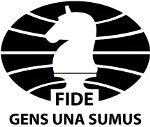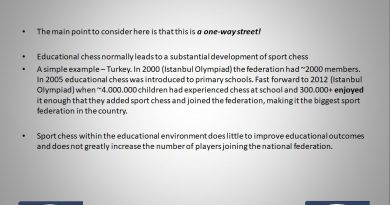Develop learning to learn strategies through chess

In her series of blogs, Renate Otterbach explores her journey to learn chess as an adult. Let us begin with a brief introduction about the author, in her own words:
I worked as an educational consultant for the gifted and talented at Region IX Educational Service Center. I became increasingly interested in critical and creative thinking and cognitive processing during this time. I left that job to dedicate myself full-time to my doctoral studies in learning and instruction, exploring how people encode information and how these differences affect their problem-solving ability. After completing my doctorate, I received a post-doc at Yale University working with Robert Sternberg in applying different theoretical learning models to classroom instruction. After my post-doc, I returned to San Francisco and worked as a research analyst. In addition, I taught college courses in research methodology and education.
In 2011, I discovered chess. I became fascinated with tactics problems and joined the Mechanics Institute chess club, only to discover increasingly complex patterns and ideas. I started to enjoy studying chess as much as playing it, maybe even more. It provided a venue to explore the game and the cognitive processes underlying problem-solving. My interest merged, and I emersed myself in teaching myself chess—asking questions and finding answers—only to discover new questions. Chess became both my playground and my laboratory.
Over the last ten years, I have learned much about chess, cognitive processing, learning, and teaching. In this series of blogs, I want to share some of the key insights I gained; please join me on the journey.
Renate Otterbach

